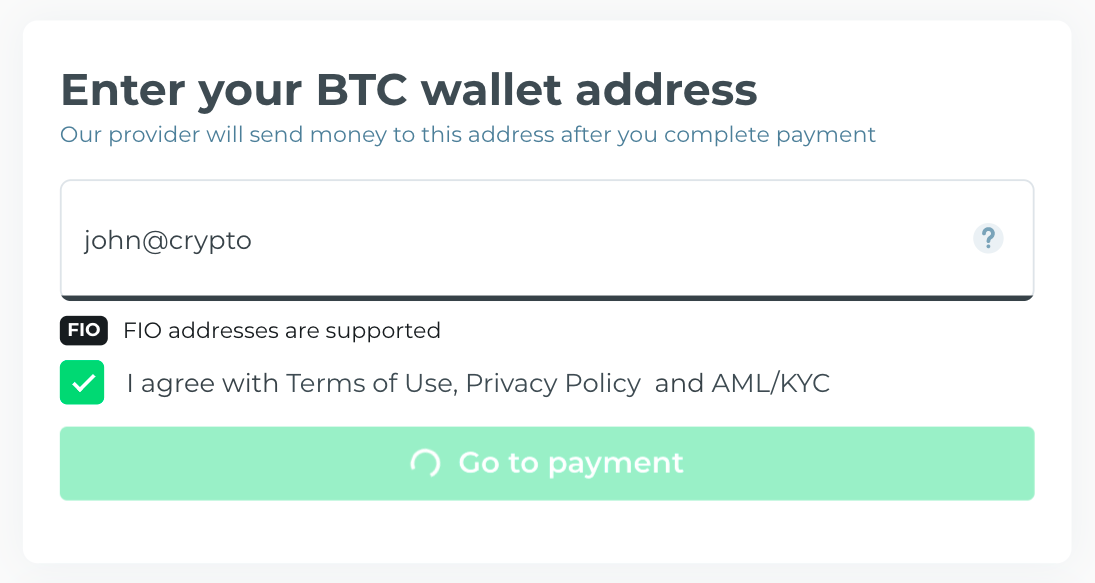We are thrilled to announce that Changelly now supports FIO Protocol. Starting today, Changelly users will be able to use FIO Addresses and FIO Request to make crypto purchases and swaps even easier.
The new feature is designed to simplify the process of interaction between users and the exchange. It allows users to initiate transactions using human-readable and memorable identifiers like john@crypto.
Create your personal FIO Address for free and use it every time you need to make a swap or buy crypto. Now, let’s take a look at how this new feature works.
- Create your FIO Address
- Select the coins you want to exchange or buy on Changelly.com
- Enter your FIO Address in the recipient address field instead of a long wallet address
- Proceed with the transaction

In addition to FIO Addresses, users will also now be able to take advantage of FIO Request – a feature that allows you to request funds directly from your FIO wallet instead of having to send the exact amount of crypto to an address provided by an exchange.
You just need to enter your FIO Address and then approve the transaction in your wallet. You will see the status of your request on the confirmation page.
About FIO Protocol
FIO, the Foundation for Interwallet Operability, is a decentralized consortium of blockchain organizations and community members supporting the ongoing development, integration, and promotion of the FIO Protocol. The FIO Protocol reimagines and enables a better way of sending and receiving blockchain-based value, regardless of the wallet, exchange, token, or coin used. This is achieved in a human-meaningful, decentralized, and secure manner.
FIO Protocol currently provides the following features:
- FIO Addresses – a human-readable wallet identifier which eliminates the need to see, or even know of, blockchain public addresses.
- FIO Requests – the ability to request funds from any other wallet, utilizing in-wallet/app notifications and simple approvals.
- FIO Data – encrypted metadata that can be attached to any transaction, such as a simple memo, structured data (like an order cart), or hashes and references to off-chain data.
